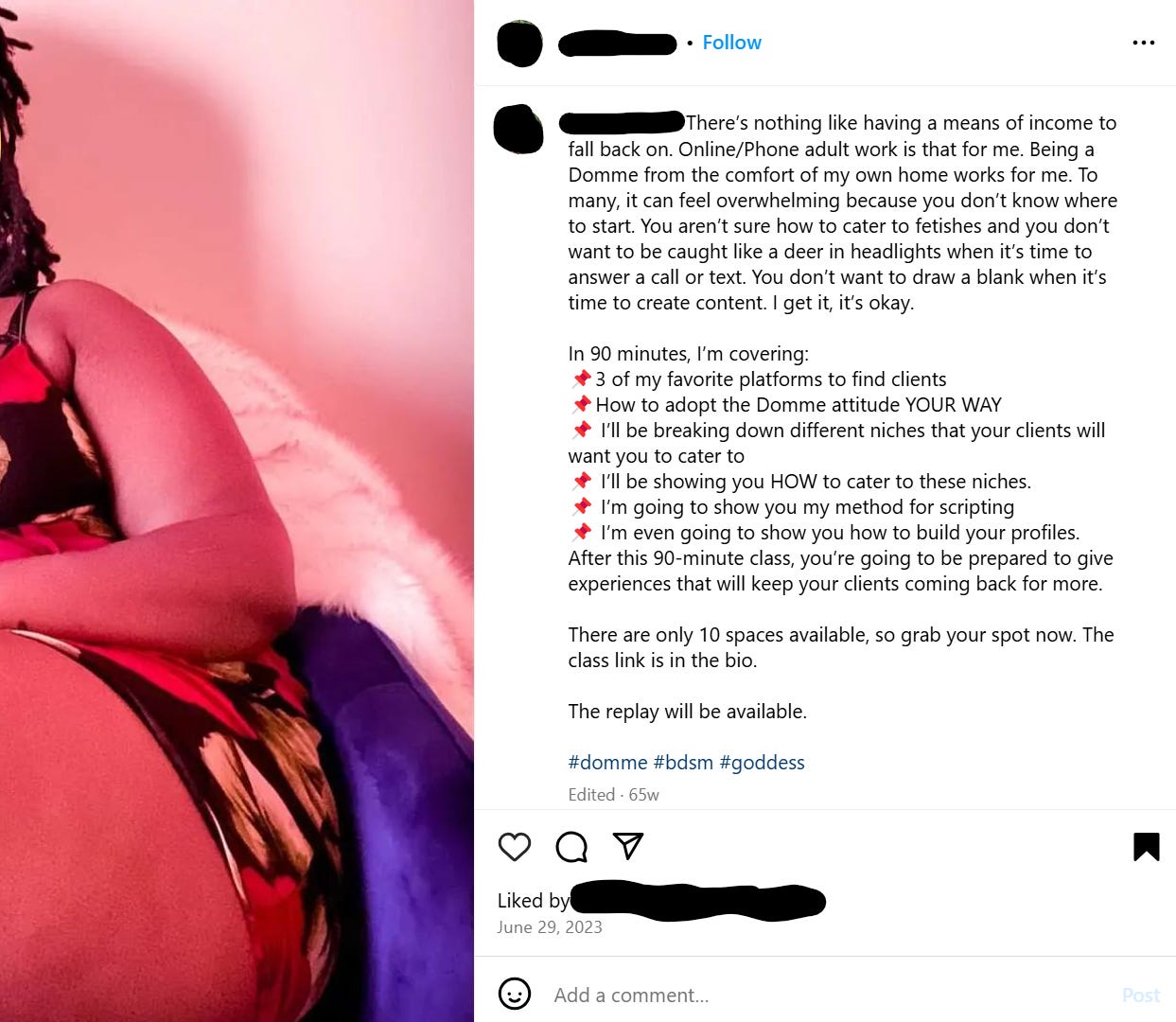Bias: Reporter leaves adult sex work out of the tale of woman denied Medicaid
Did KFF Health News hide profession to sell readers on government medical welfare?
To sell the story of how Arkansas is missing the boat on expanding Medicaid, KFF Health News reporter Sarah Varney introduces readers of her Sept. 18 article to the story’s victim: a woman, six weeks after giving birth to twins, who went to a pharmacy, and found out she didn’t have insurance.
The woman is also described as a 39-year-old freelance copywriter, whose kids were still in the NICU when she learned that she no longer had health coverage.
But as I dug deeper into the story, I couldn’t find a single source that mentioned the article’s subject being a freelance copywriter. What I did found instead was an Arkansas woman with the same unique name, whose newborn twins were in the care of a hospital neonatal intensive care unit … and describes herself in video interviews and other websites as a professional dominatrix, spiritual advisor, and tarot card reader, among other related things.
In one video from a couple of years ago, the woman mentions in passing that she’s done some ghostwriting, but that’s the only major reference to a profession similar to “freelance copywriting” that I could find.
If she’s a professional copywriter, the internet doesn’t seem to be aware of it, even according to the woman’s biographical descriptions of herself.
I’m not posting links to Varney’s article here, nor mentioning the woman’s name. I’ve concealed the woman’s identity in the screenshot of her Instagram page because the intention of my follow up post is not to cast aspersions on the new mom or the work she does. I question the way the story is presented in order to favor a particular outcome, in this case, the expansion of government-run medical welfare in the state of Arkansas.
I know a number of quality people who either make a living or supplement their incomes as spiritual advisors, adult sex workers, or tarot card readers. I don’t have a bit of animus toward any of them, and I wouldn’t advise anyone to think poorly of such people merely because of their professions.
The issue of profession is important only because I have found that reporters tend to leave out details that could make the reader, viewer, or listener less sympathetic to their central character. A freelance copywriter who can’t get health insurance is much more relatable and compelling as a story’s victim than, perhaps, the sex worker who offered on social media a year ago to coach people on how to cater to fetishes.

If Varney had introduced her story’s subject with, “Suzi Sunshine, who is a 38-year-old dominatrix and spiritual advisor, said she’s struggling because the state didn’t expand Medicaid to cover her after giving birth,” it’s doubtful it would have landed with the same punch as the freelance copywriter frameup.
Varney’s story was constructed to have an impact on the outcome of a policy debate, not to educate the public on a public policy matter and leave readers to draw their own conclusion. Further, the point was to attack the Arkansas policymakers — namely Gov. Sarah Huckabee Sanders — who have resisted expanding Medicaid. She and her ilk are the story’s villains. The heroes are the people who want to expand Medicaid, thus saving the story’s victim, the freelance copywriter.
What do you think? Let me know in the comments.



